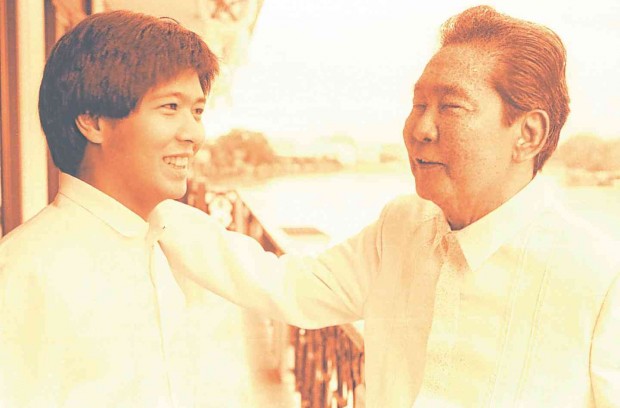A movement composed of martial law victims vowed to hound the campaign sorties of Sen. Ferdinand “Bongbong” Marcos Jr. and block his bid for the vice presidency.
Carmma—which stands for the Campaign Against the Return of the Marcoses to Malacañang—was launched Thursday in Quezon City in a gathering of torture victims and the families of activists who disappeared during the iron rule of Bongbong’s father, Ferdinand Marcos.
Carmma will serve as a conscience for voters, especially the youth for whom history has been distorted through the social media, according to University of the Philippines professor Judy Taguiwalo.
Aside from mass actions and forums, the group will use the social media and use creative means like concerts and poetry readings to raise awareness about the suppression of basic freedoms and the massive corruption under the Marcos dictatorship.
For Bonifacio Ilagan, vice chair of Selda (Samahan ng mga Ex-Detainees Laban sa Detensyon at Aresto), the Marcos scion is “not the guiltless son that he presents himself to be.”
In a manifesto, Carmma recounted the “sins” of Bongbong. In 1985, he was appointed board chair of the Philippine Communications Satellite Corp. (Philcomsat), receiving a salary of $9,700 to $97,000, the manifesto said.
Philcomsat was later discovered by government auditors as one of the entities used to siphon ill-gotten wealth out of the country, an apparent precursor of the pork barrel scam, Karapatan chair Marie Hilao-Enriquez noted.
“We suffered during martial law under a Marcos who muzzled us and raped the economy. His successors learned from him, as the pork barrel shows,” Enriquez said. “We fought martial law and we will fight Bongbong Marcos’ vice presidential bid.”
The economy bled to death due to behest loans granted by Marcos Sr. to his cronies, Carmma said. Under his rule, the number of Filipinos living below the poverty line doubled from 18 million in 1965 to 35 million in February 1986.
“The dictator also left behind a staggering foreign debt of $27 billion. This belies the claim of Bongbong that life was better off for Filipinos under Marcoses,” Carmma said.
Taguiwalo flared up when a TV reporter asked if a particular politician was behind the anti-Bongbong campaign. “If you know what we had gone through under martial law, what we have given up and what we have suffered, you wouldn’t even dare ask that question. I really feel insulted that you think there’s a politician prodding us to organize this,” the UP professor said.
“We are not anti-Marcos because we want to be in Malacañang. Our motivation has always been true freedom and democracy,” she said.
